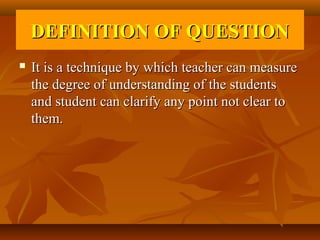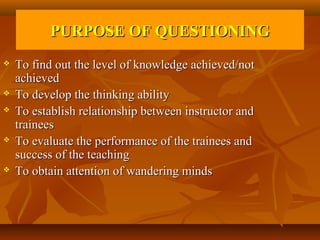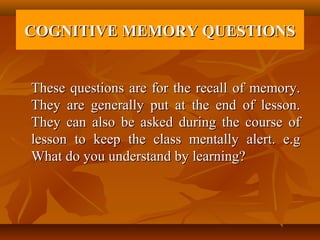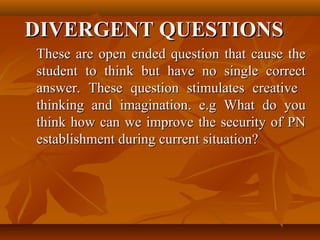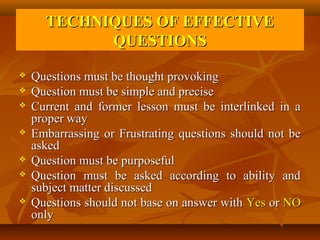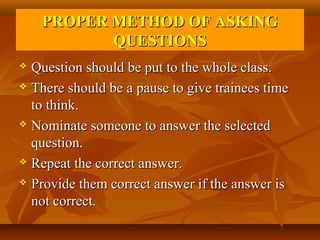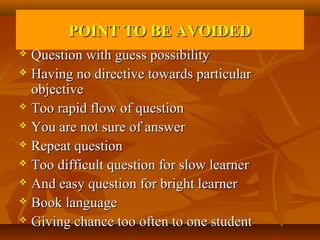The document discusses the definition and types of questions in an educational context, emphasizing their role in assessing student comprehension and fostering engagement. It outlines five specific types of questions: cognitive, convergent, divergent, evaluating, and clarification, each serving distinct purposes in the classroom. The text also provides guidelines for effectively asking questions and highlights common pitfalls to avoid in order to enhance learning.


